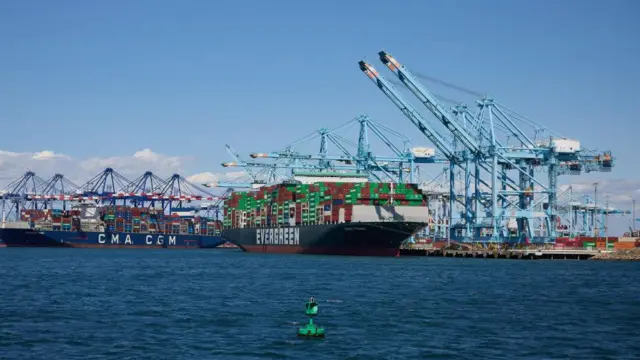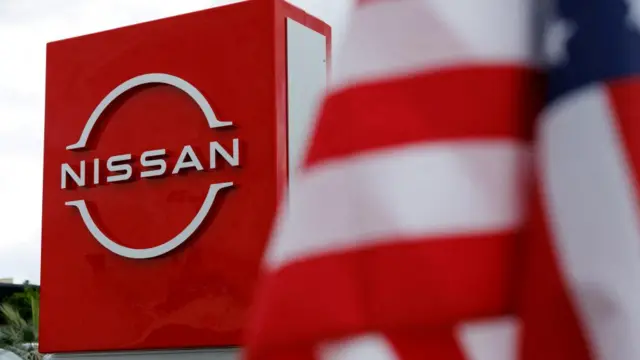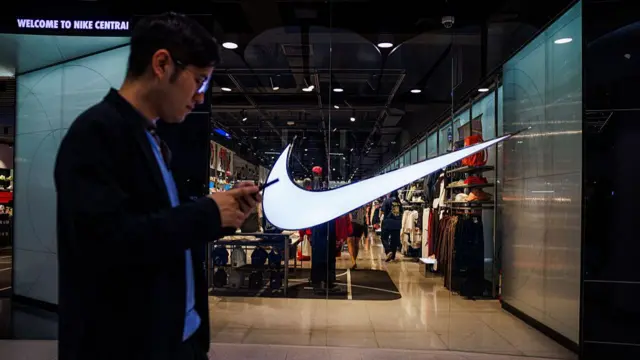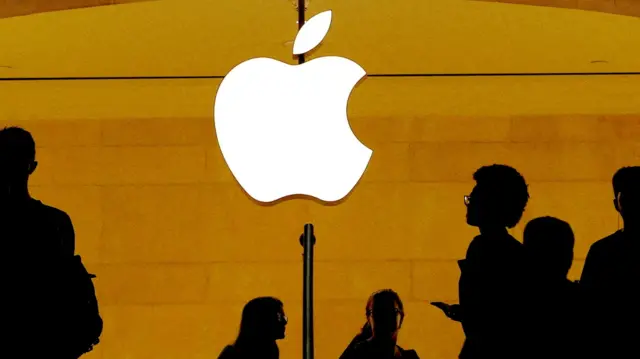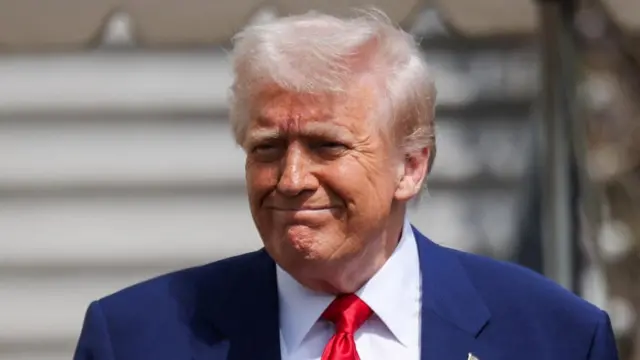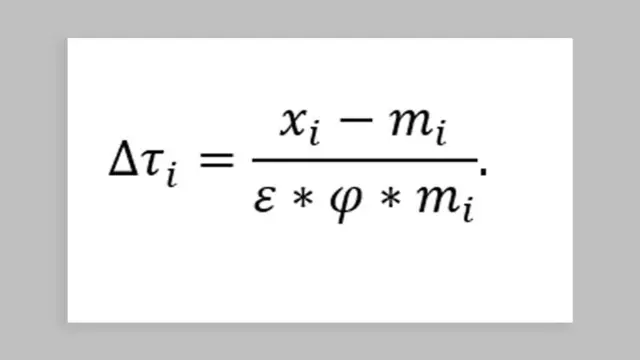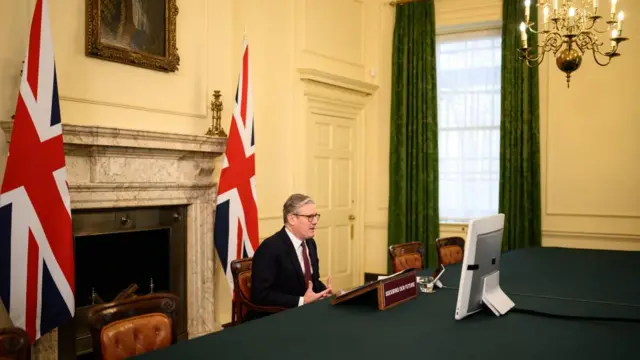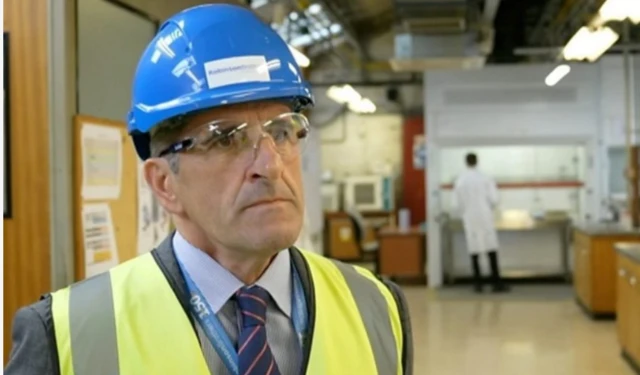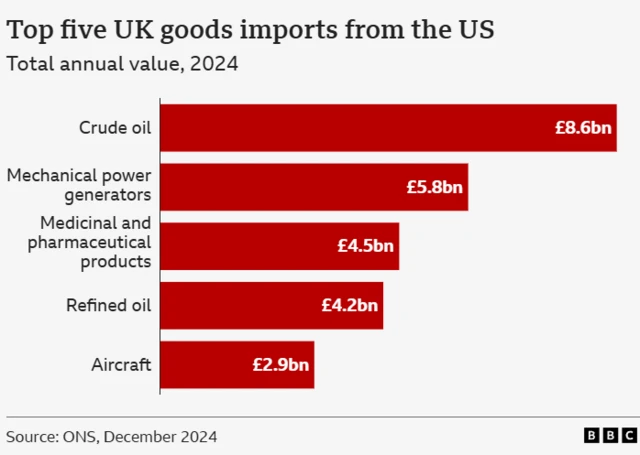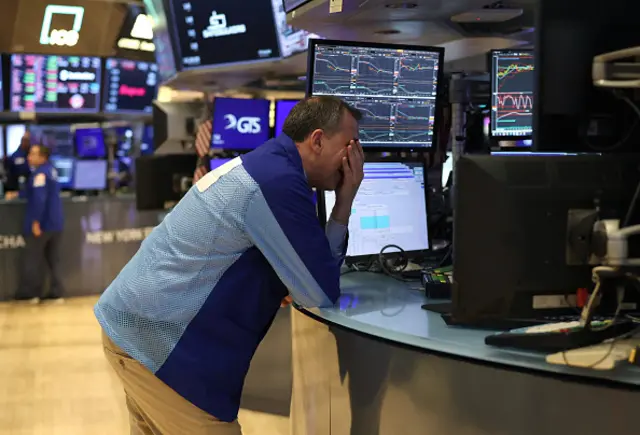
China's retaliatory tariffs hit US farmers particularly hardpublished at 10:43 BST 5 April
 Stephen McDonell
Stephen McDonell
China correspondent
There had been a view that the Chinese government might hold off from imposing retaliatory tariffs on the US for at least a little while, with a view to cutting some sort of deal.
President Xi Jinping has obviously decided there is no deal to be cut, certainly not in the near future and certainly not to China's liking.
Any countermeasures are disastrous for every US company wanting to sell into this huge market.
It's especially bad for the US agricultural sector. They already had 10 or 15% tariffs on them from China's last response to the last round of Trump tariffs. Now you're adding 34% on top of that, it is essentially cutting most of them out of this market, and that's striking right into Donald Trump's heartland.
The rest of the world though is looking at the superpowers, they're at each other's throats, and economists are warning this could spread around the globe, causing potentially catastrophic damage to the world economy.
Maybe China could find new trading partners - Europe, Canada - new pathways which would cut the US out of the loop, because of its trade barriers that are going to hurt US companies and US consumers even further.
But we are definitely in uncharted territory here, and most observers would say we're just going to have to wait and see where the chips fall before deciding how bad this could get.
 Image source, Getty Images
Image source, Getty Images